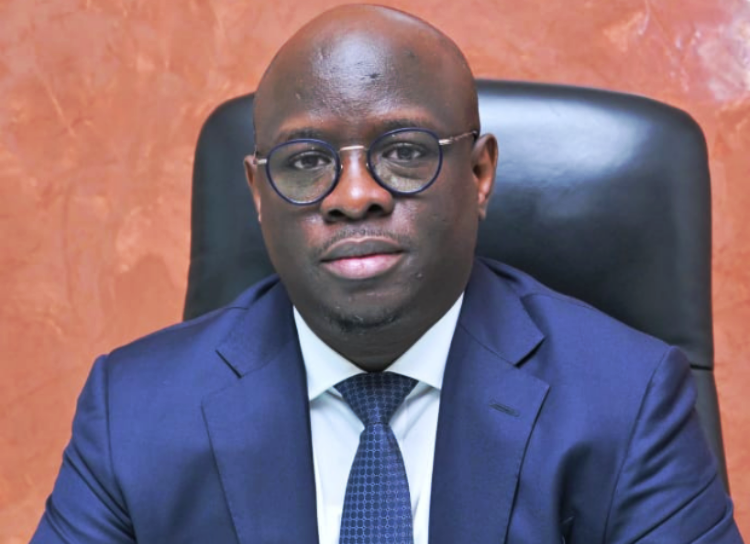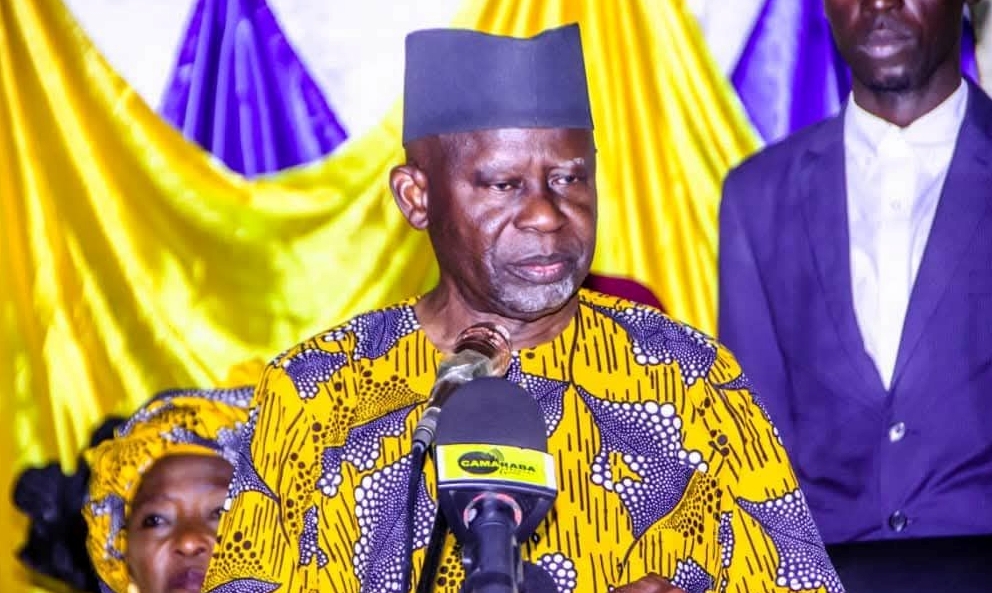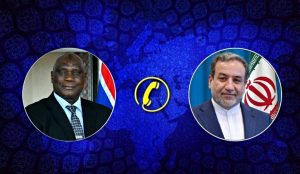Gambiaj.com – (BANJUL, The Gambia) – As The Gambia gears up for the pivotal 2026 presidential election, United Democratic Party (UDP) leader Ousainou Darboe has declared the race a “do-or-die” moment for his party and the country—hinting at deep personal investment in the outcome, even as he stops short of formally declaring his candidacy.
Addressing supporters in Wellingara Tabanding on Tuesday, Darboe painted a dire picture of the country’s political trajectory under President Adama Barrow’s National People’s Party (NPP) coalition, accusing it of systemic corruption and weak constitutional reform. “The kind of destruction happening in this country must end,” he told the crowd. “And that is what the UDP is out to do.”
But beyond the policy critiques and party rallying cry, Darboe’s speech reflected a deeper narrative: his own continued relevance, legitimacy, and—despite internal party debates—possible intention to once again seek the presidency.
“The Decision Is in the Hands of the People,” Party Loyalty vs. Internal Questions
Darboe, who has led the UDP since its founding in the 1990s, framed his political journey as one of principled sacrifice.
He recounted turning down overtures from Yahya Jammeh’s regime to join the government, highlighting a conversation with former NIA Director Abdoulie Kujabi as a key moment when he rejected personal power in favor of political integrity.
“I told him my mission in politics is to liberate my people and not to look for a position,” Darboe said. “If I was only interested in the trappings and enjoyment of government, I would have still been in office.”
Yet, even as he insists he is not chasing office for personal gain, his unwavering presence at the helm of UDP and insistence that 2026 is a make-or-break election suggest otherwise. “But that decision is in the hands of the Gambian people,” he said of the presidency—leaving the door open for what many believe is an inevitable candidacy.
The UDP remains firmly under Darboe’s leadership, despite growing internal calls for generational change.
A year ago, diaspora-based militants within the party proposed Kanifing Mayor Talib Ahmed Bensouda as a fresher, more dynamic alternative for 2026—someone whose youth and performance in office could broaden the party’s appeal beyond its traditional base and blunt criticisms of ethnic dominance.
Nevertheless, Darboe continues to enjoy intense loyalty from party loyalists, many of whom view him as a political martyr for enduring multiple arrests and decades of struggle against the Jammeh dictatorship.
“The love and respect I continue to receive as the UDP leader dwarfs even the privileges accorded to founding president Sir Dawda Jawara,” Darboe said, underscoring his symbolic stature within the party.
Yet the tension remains: a growing segment of the electorate—and some within UDP—question whether the now-octogenarian statesman can still mount a viable challenge against Barrow, who has already declared his intention to seek reelection.
2026: A Defining Moment for Darboe and UDP
While Darboe casts his role as driven by civic duty—“I care for the welfare of the people in general”—his framing of the 2026 election as a national crossroads subtly blurs the line between personal ambition and party mission. By labeling the election “the biggest of all Gambian elections” and calling on citizens to “move away from our comfort zones,” he positions the UDP—and implicitly, his leadership—as the only bulwark against what he sees as national decline.
He further criticized the 2024 draft constitution for shielding the president and his ministers from scrutiny while exposing National Assembly Members to post-office investigations. “Any president who protects people handling contracts and managing our resources from accountability should be rejected outright,” Darboe asserted.
These positions signal a battle not just for office, but for legitimacy and legacy—one Darboe appears increasingly prepared to fight once again, even as he defers the final word to the electorate.
In many ways, Darboe’s speech signals more than just opposition to Barrow—it’s an argument for his own political relevance, his narrative of self-sacrifice, and a legacy still unfinished. While he remains coy on officially announcing a presidential bid, his rhetoric and continued dominance within the UDP make his candidacy all but presumed.
If 2026 is indeed a do-or-die moment for UDP, it may also be the final act of a political career defined by resistance, resilience, and, perhaps, one last shot at the presidency.










